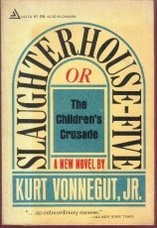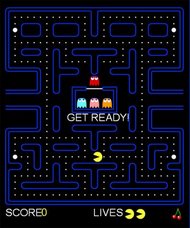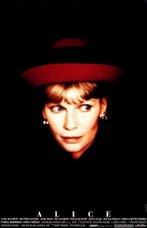The whole process of making Serenada was so...schizophrenic...for me, I didn't know what to call it. I expected it to be something that had links between – more like trying to do some kind of novel – and it ended up being a collection of short stories that on the surface had nothing to do with each other, but in some weird way, kept playing themselves together and in the same order, so whatever their connection is, they're subconscious at my level. The whole thing felt like a battle between all the different warring composers that live in my head. I knew that the whole thing was a very schizophrenic thing, and so I just wanted to make a play on words and do something that wasn't too pretentious. I liked Serenada Schizophrana. By the way, Everything But the Kitchen Sink was the first title I came up with.
 It was an incredible education for me. First, writing without a picture was a great joy, because frequently when I'm on a score, I come across an area where I'm writing a piece of music, and I'm just really enjoying myself, and I wish I could keep going. But, whether it's 45 seconds or a minute or two minutes, whatever the cut-off is, the movie changes, and so the music has to change too. This time, I could just let everything just run amok, and it was really fun. It was really hard to get everything started, launching each piece. Getting momentum going was a huge struggle. Then, once each of these pieces started getting inertia, they just started taking over, and then it became fun.
It was an incredible education for me. First, writing without a picture was a great joy, because frequently when I'm on a score, I come across an area where I'm writing a piece of music, and I'm just really enjoying myself, and I wish I could keep going. But, whether it's 45 seconds or a minute or two minutes, whatever the cut-off is, the movie changes, and so the music has to change too. This time, I could just let everything just run amok, and it was really fun. It was really hard to get everything started, launching each piece. Getting momentum going was a huge struggle. Then, once each of these pieces started getting inertia, they just started taking over, and then it became fun.In film music, we don't have the luxury of writer's block. Writer's block is a luxury for those who have time to be blocked. My whole discipline for twenty-one years now has been to get myself to kick my own ass and get myself moving, you know what I mean? So when I see a picture, I will hear something. I've got to work it really, really hard in the beginning to find the tone, to get themes worked out. Then, at a certain point, once I have done that, the scenes just call for the music; I look at the music and I play the music.
Serenada Schizophrana was a lot harder, not having anything to kick-start with. you don't have time to sit around here wondering what you want to do and feeling intimidated. You gotta get your ass into that chair in front of the piano and start working, and I did. I have a lot of training of – when the adrenaline goes, I go, and just to move. Once I finally got going, it was a blast. I think with anything, it's hard to get those first steps. It's hard to start that boulder rolling uphill. Sometimes it seems impossible, but, you know, at a certain point, it's rolling downhill, and then it's fun.
I stopped using pencil and paper about eleven years ago. Now I work in front of a computer, and I have a palette of mock orchestra sounds that I work with, and I'm able to conjure up sounds that are a little more dense, things that I'm reaching for, than I could do just straight out of my head on paper. I used to do demos of every piece and then write them all down for my first ten years. In hindsight, I think it was a good thing, even though I don't think I ever worked less than eighteen hours a day! I think it was a good discipline, even though now, with the computer, I no longer have to do that. I can play music in and then print it out.
If I'm just going to score films, I'm going to go crazy. For ten years, I balanced myself between being in a rock band and scoring. Then, for ten years, I did just scoring, and I found that I was going kind of postal half the time. Film work is so intense and it's so difficult and in the end it can be so frustrating, and on occasion, really frustrating and unsatisfying in the end result. It's kind of maddening. There are those few things every now and then that will be satisfying, and that'll fuel me on, but I need to do things I haven't done before, and film doesn't often offer that opportunity. Occasionally it does, and I'm grateful for it. But I realize that if any opportunity comes along to do something I haven't done before, like these commissions, I have to, to keep myself sane. I have to jump for them. And now, I'm hoping to work on a ballet next year, so I hope that I can keep this going.
 Much of the music that I was inspired by as a young man and a teenager were ballets, so I feel probably closer to ballet than to any form of classical music in terms of – so much of the things I love were Prokofiev and Stravinsky ballets. That got me started thinking about that kind of music in the first place. It's all a juggling act, but I'm happiest when I'm juggling. So I need to do something else, and this is a good venue. In terms of having a new child, a son in the family, well, that's always a wonderful thing. I can't say it helps with my work at all! That kind of juggling just makes everything a little more difficult, but it's worth it, as every parent knows. Since I work at home, it's rough, because every time I walk through the house, if I get spotted by my son, who's about to turn twenty-two months, I'm done for; he catches me, and I can't just walk past him. Even though in my own head, I might just be coming up for a drink of water or a cup of coffee, he nabs me, and that's it for the next forty-five minutes.
Much of the music that I was inspired by as a young man and a teenager were ballets, so I feel probably closer to ballet than to any form of classical music in terms of – so much of the things I love were Prokofiev and Stravinsky ballets. That got me started thinking about that kind of music in the first place. It's all a juggling act, but I'm happiest when I'm juggling. So I need to do something else, and this is a good venue. In terms of having a new child, a son in the family, well, that's always a wonderful thing. I can't say it helps with my work at all! That kind of juggling just makes everything a little more difficult, but it's worth it, as every parent knows. Since I work at home, it's rough, because every time I walk through the house, if I get spotted by my son, who's about to turn twenty-two months, I'm done for; he catches me, and I can't just walk past him. Even though in my own head, I might just be coming up for a drink of water or a cup of coffee, he nabs me, and that's it for the next forty-five minutes.I think that I consider myself a throwback. I'm a big fan, I was inspired by early twentieth century orchestral music, and then by the Golden Age film composers quite a bit. But even those incredible film composers who were writing in the forties through the sixties, that I think was the greatest age for film composition, they were also – their music was inspired by the music from the early part of the twentieth century, the European composers and American composers. It all comes from that same place, and I think that I weirdly lost the classical music link.
Somewhere in the middle of the century on, something lost me, and I find myself still linked to that earlier time with driving rhythms and melodies still present in a certain way. The first time I heard Prokofiev, it was like love at first listen, and the same with Bernard Herrmann, so those things are forever a part of me.












